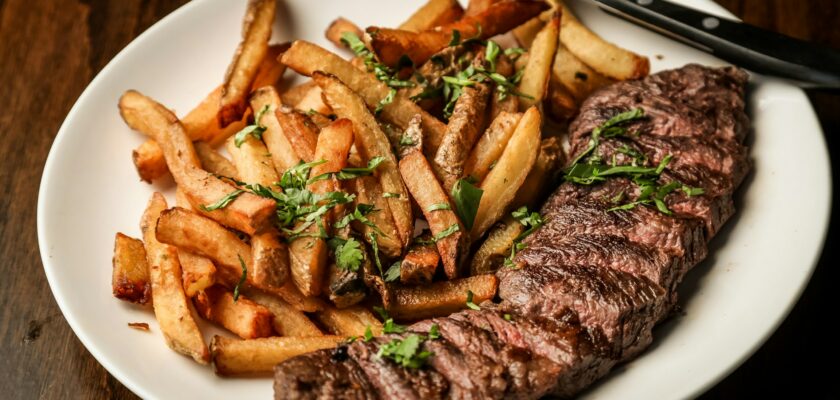Americans love red meat! Here are the signs that you may be eating too much.
In recent years, red meat has been under scrutiny due to its potential health risks when consumed in excess. While red meat can be a rich source of protein, iron, and other essential nutrients, overindulgence may lead to various health issues. Here are some signs that indicate you might be consuming too much red meat and should consider reevaluating your dietary habits:
- Digestive Discomfort: One of the most immediate signs of overconsumption of red meat is digestive discomfort. If you often experience bloating, gas, constipation, or diarrhea after meals heavy in red meat, it could be a signal that your digestive system is struggling to process the high protein and fat content.
- Increased Risk of Heart Disease: Numerous studies have linked excessive red meat consumption to an increased risk of heart disease. Too much saturated fat and cholesterol found in red meat can raise your blood cholesterol levels, leading to plaque buildup in the arteries and increasing the risk of heart attacks and strokes.
- Weight Gain: Red meat, especially processed varieties like sausages and bacon, is calorie-dense and can contribute to weight gain if consumed in large quantities. If you notice that you’re packing on the pounds despite no significant changes in your overall diet and activity level, your red meat intake might be a contributing factor.
- Elevated Blood Pressure: Excessive consumption of red meat has been associated with high blood pressure. The high sodium content in processed red meats, coupled with the detrimental effects of saturated fats on blood vessel function, can contribute to hypertension over time.
- Increased Cancer Risk: While the link between red meat consumption and cancer isn’t entirely clear-cut, several studies have suggested that eating large amounts of red meat, particularly processed varieties, may increase the risk of certain types of cancer, such as colorectal cancer. The compounds formed during the cooking process, such as heterocyclic amines (HCAs) and polycyclic aromatic hydrocarbons (PAHs), are thought to play a role in cancer development.
- Fatigue and Lack of Energy: Red meat is a rich source of protein, but excessive consumption can lead to an imbalance in your diet, potentially causing fatigue and a lack of energy. If you find yourself feeling sluggish and lethargic despite getting an adequate amount of sleep, your red meat intake might be contributing to your low energy levels.
- Kidney Problems: Consuming too much red meat can put a strain on your kidneys. High protein diets can increase the workload on the kidneys as they work to metabolize and eliminate the byproducts of protein digestion. Over time, this increased strain may contribute to the development of kidney problems or exacerbate existing kidney conditions.
- Joint Pain and Inflammation: Some individuals may experience joint pain and inflammation as a result of consuming too much red meat. Certain compounds found in red meat, such as purines, can contribute to inflammation in the body, exacerbating conditions like arthritis and gout.
If you recognize any of these signs in yourself, it might be time to reassess your red meat intake and make some dietary adjustments. While red meat can be enjoyed as part of a balanced diet, moderation is key. Consider incorporating more plant-based protein sources, such as legumes, nuts, seeds, and tofu, into your meals and limiting your consumption of red meat to smaller, occasional servings. Your body will thank you for the mindful choices you make towards your health and well-being.
